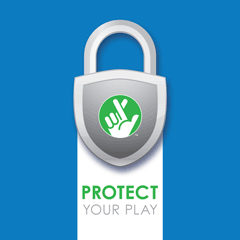
October is Cybersecurity Awareness Month!
You should be suspicious of any email that requests personal or account information. Should you receive such a message, assume it is a scam. Do not respond to the sender, and do not, under any circumstances, provide the requested information. You may report any suspected illegal online activity to the Virginia Attorney General's office at cybercrimeunit@oag.state.va.us
Protect Your Play
You should be suspicious of any email that requests personal or account information. Should you receive such a message, assume it is a scam. Do not respond to the sender, and do not, under any circumstances, provide the requested information. You may report any suspected illegal online activity to the Virginia Attorney General's offices.
For hard-copy tickets purchased at a Lottery retailer, you can protect yourself by using these four short reminders: Sign it. Hold it. Scan it. Know it.
Sign your ticket upon purchase. Keep your win off social media and never give your ticket to someone else unless you want to give it to that person. Use the Lottery’s scanning tools to see if a ticket is a winner. Know the rules about claiming a prize before it expires. Sign it. Hold it. Scan it. Know it.
For online purchases, you can protect yourself by creating a strong password; keeping your browser, apps, and software up to date; and enabling multi-factor authentication. As with all accounts containing financial information, we recommend that you regularly monitor your account and immediately alert us to any unusual activity.
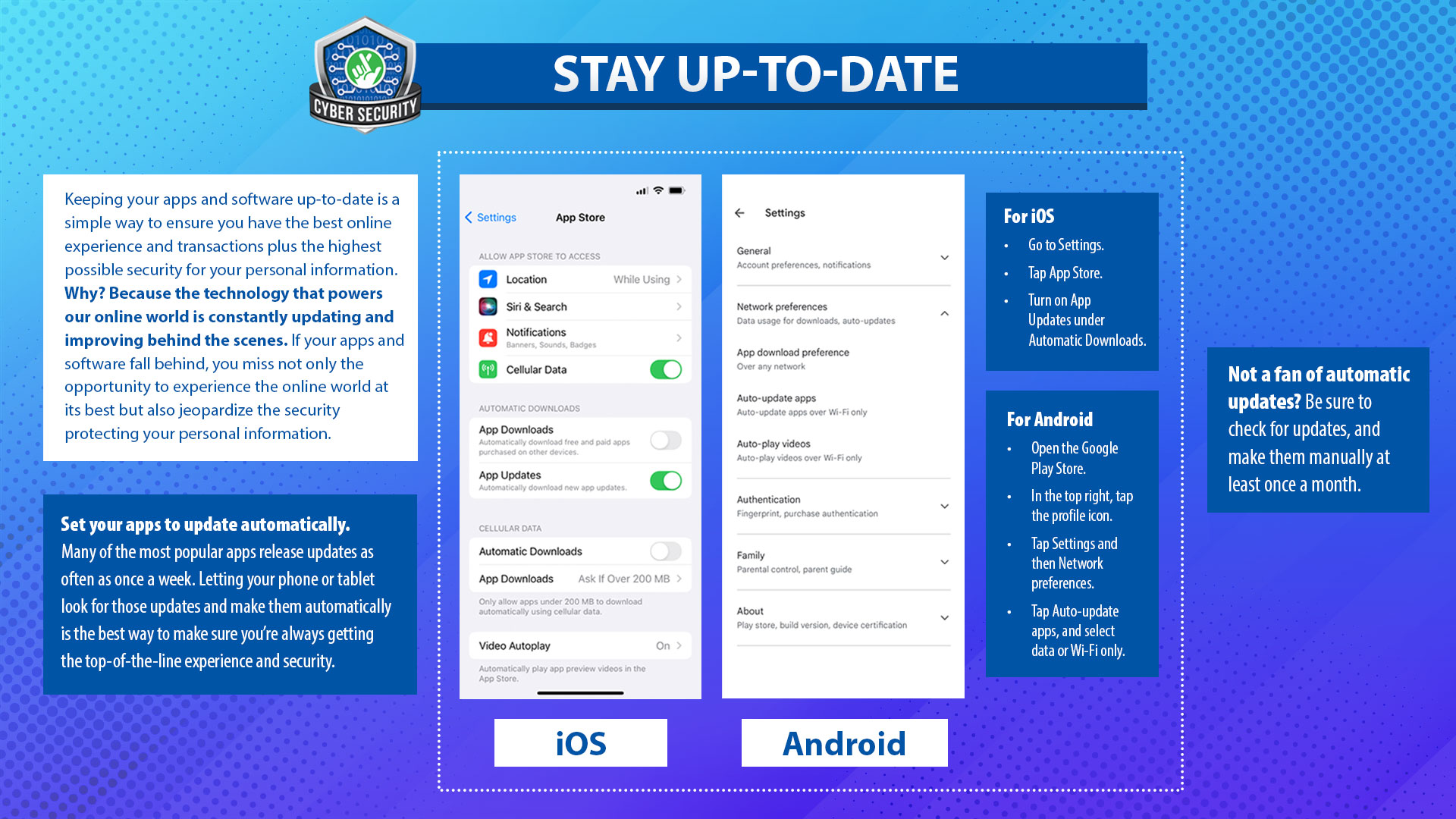
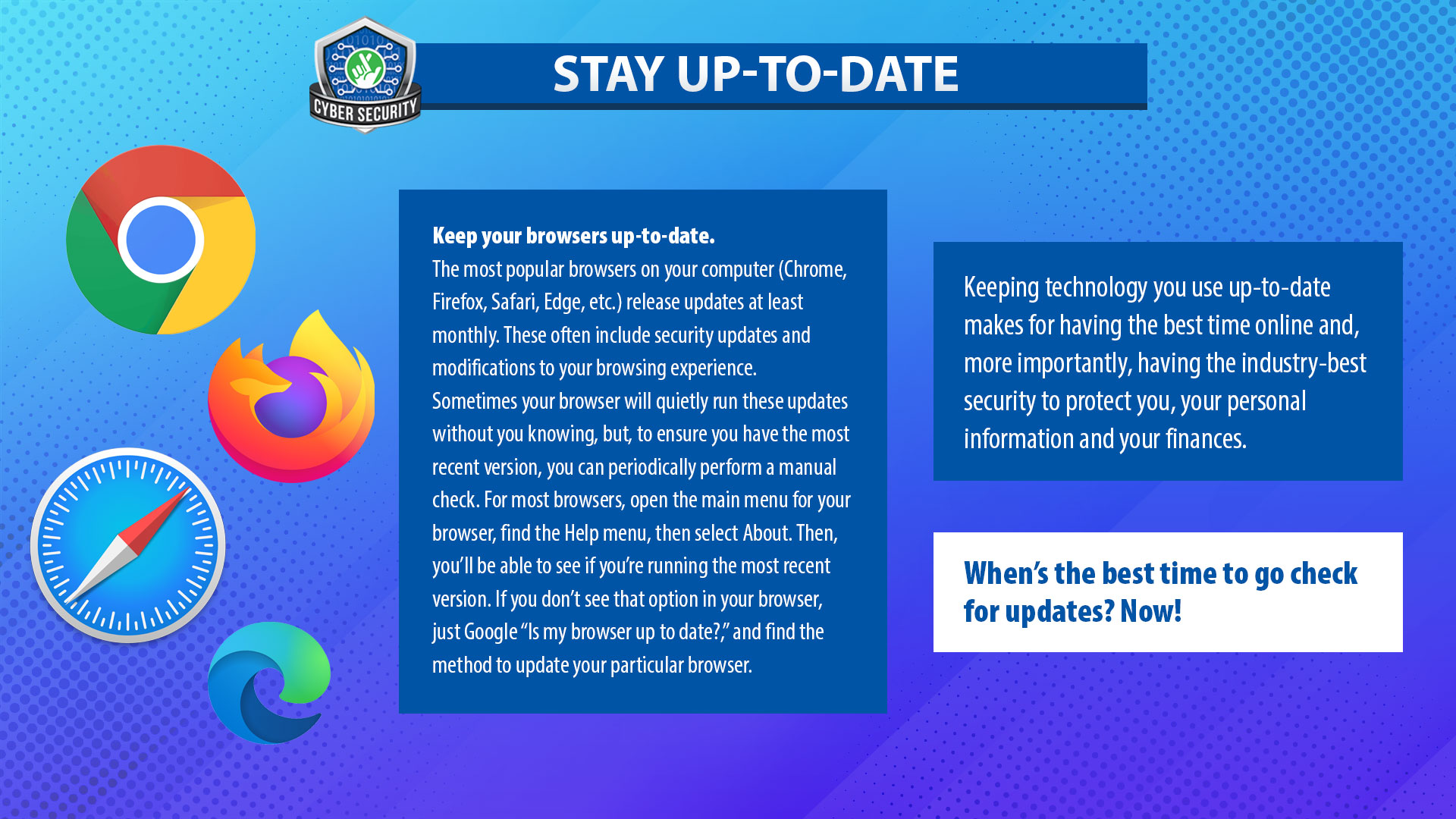
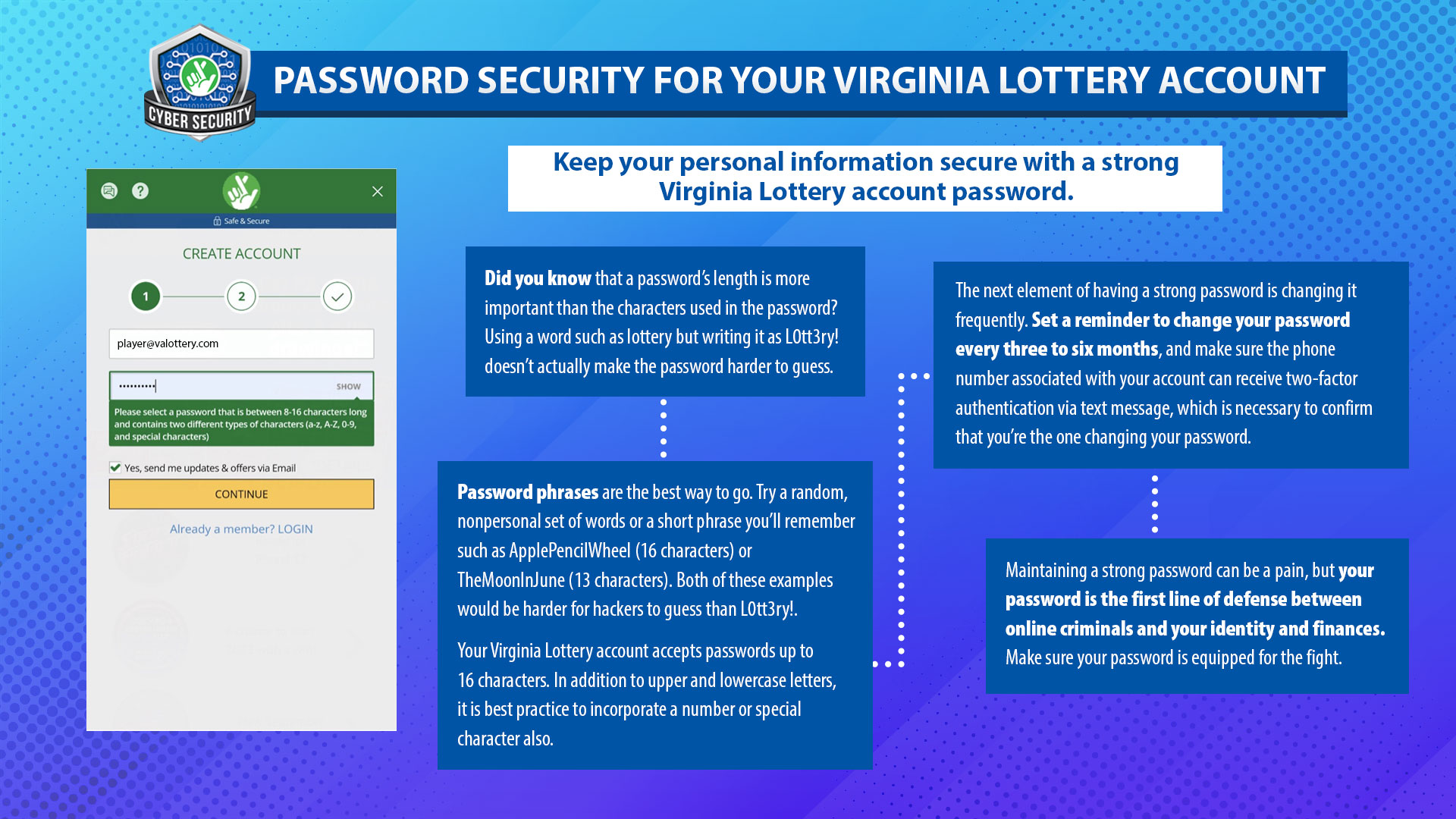
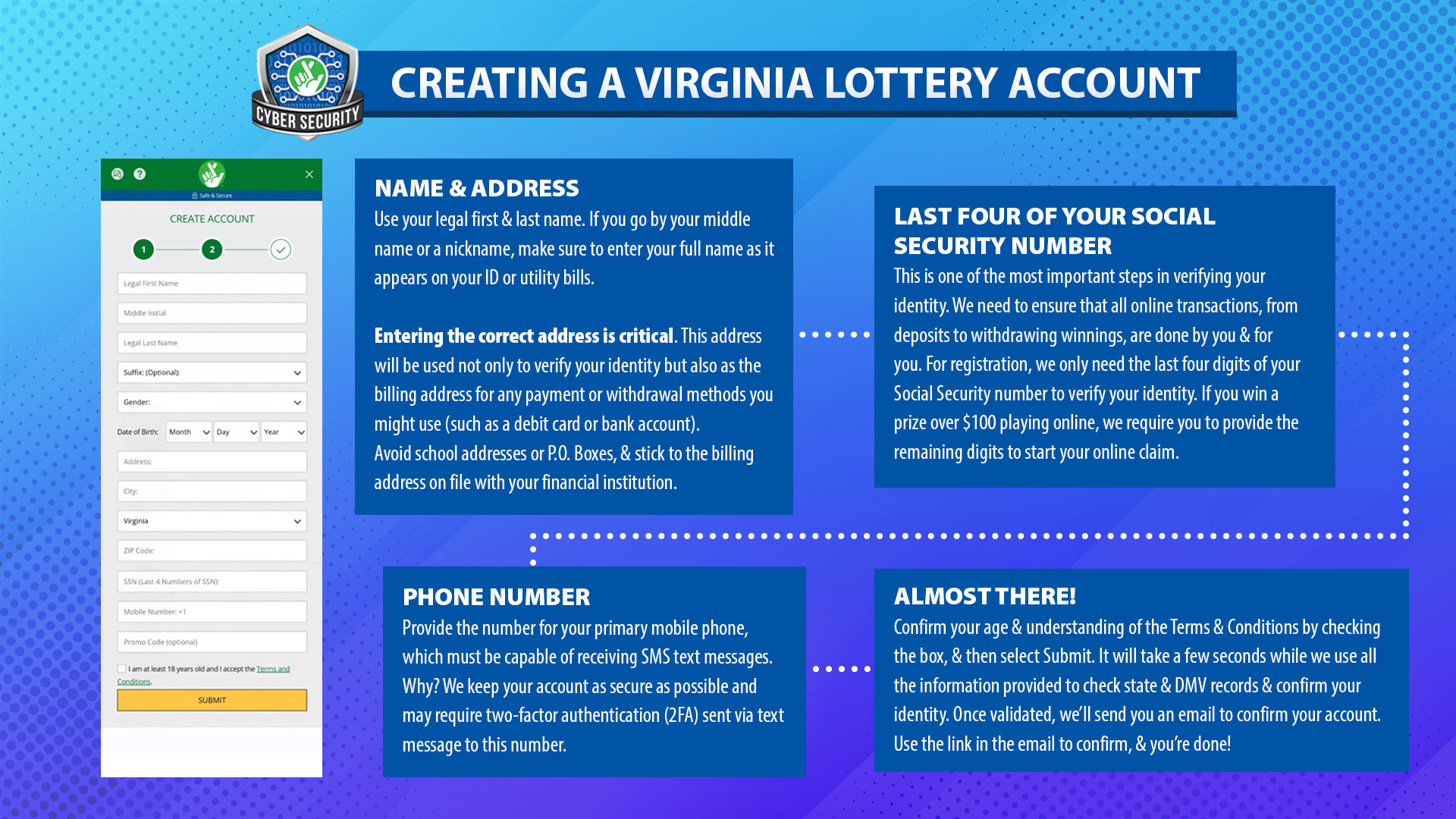
Play Smart
Recognizing online fraud
Always be wary. If it seems too good to be true, then it probably is! Criminals are becoming more and more sophisticated in their scamming tactics, but you can spot scams by looking for these key indicators:
False sense of urgency. An email that urgently requests you to provide, confirm, verify or authenticate your personal information likely is fraudulent.
Requests for security information. Fraudulent emails often claim that the bank has lost important security information that needs to be updated.
Fake links and attachments. Often, phony emails will contain a link or an attachment that may look valid but is not. To check where a link would take you, move your mouse over the link and watch for the URL in the bottom bar of the browser. If the URL looks suspicious, do not click it. Do not open any attachment contained in a suspicious email (even an image or PDF).
Typos and other errors. Fraudulent emails or websites may contain typographical or grammatical errors. The writing may also be awkward, stilted or inappropriate. The visual or design quality may be poor.
Reporting online fraud
You should be suspicious of any email that requests personal or account information. Should you receive such a message, assume it is a scam. Do not respond to the sender, and do not, under any circumstances, provide the requested information. You may report any suspected illegal online activity to the Virginia Attorney General's office at cybercrimeunit@oag.state.va.us
Lottery scams
Lottery scams are everywhere, and scammers target individuals through multiple avenues.
On social media, scammers create accounts and pretend they are the Lottery. These individuals steal the Lottery’s user profile image, create a screenname/username that appears legitimate, and then try to impersonate the Lottery. Sometimes, scam accounts impersonating past Mega Millions/Powerball winners will contact users saying they are giving away money out of the kindness of their hearts. Don’t fall for it!
Please also remember not to post pictures of your winning ticket on social media before you’ve claimed your prize.
React to these red flags, and you can avoid being scammed.
Reporting online fraud
Fraudulent emails and websites are designed to deceive you and can be difficult to distinguish from the real thing. Disguised as legitimate emails or sites and claiming to be from sources you trust, these messages and sites attempt to get you to provide personal and confidential information. You should be suspicious of any email that requests personal or account information. Should you receive such a message, assume it is a scam. Do not respond to the sender and do not, under any circumstances, provide the requested information. You may report any suspected illegal online activity to the Virginia Attorney General's office at cybercrimeunit@oag.state.va.us
React to Red Flags
React to these red flags, and you can avoid being scammed.
- Someone says you won a prize in a Lottery game you’ve never played.
- You receive a phone call that looks like it is coming from another country.
- You receive communication with misspellings or poor grammar.
- Someone says you need to keep your alleged win confidential.
- You are asked to pay a fee to collect alleged winnings.
- You get an offer to wire alleged winnings directly into your bank account.
- You are told that you can verify alleged winnings by calling a certain phone number.
If you think you are being scammed, do not engage with the scammer. Your name and contact information could end up on a list that's shared with other scammers.
If you have been the victim of a fake lottery scam, or if you have received a message that you think is suspicious, click here to report it to the Federal Trade Commission. Your report can make a difference!









